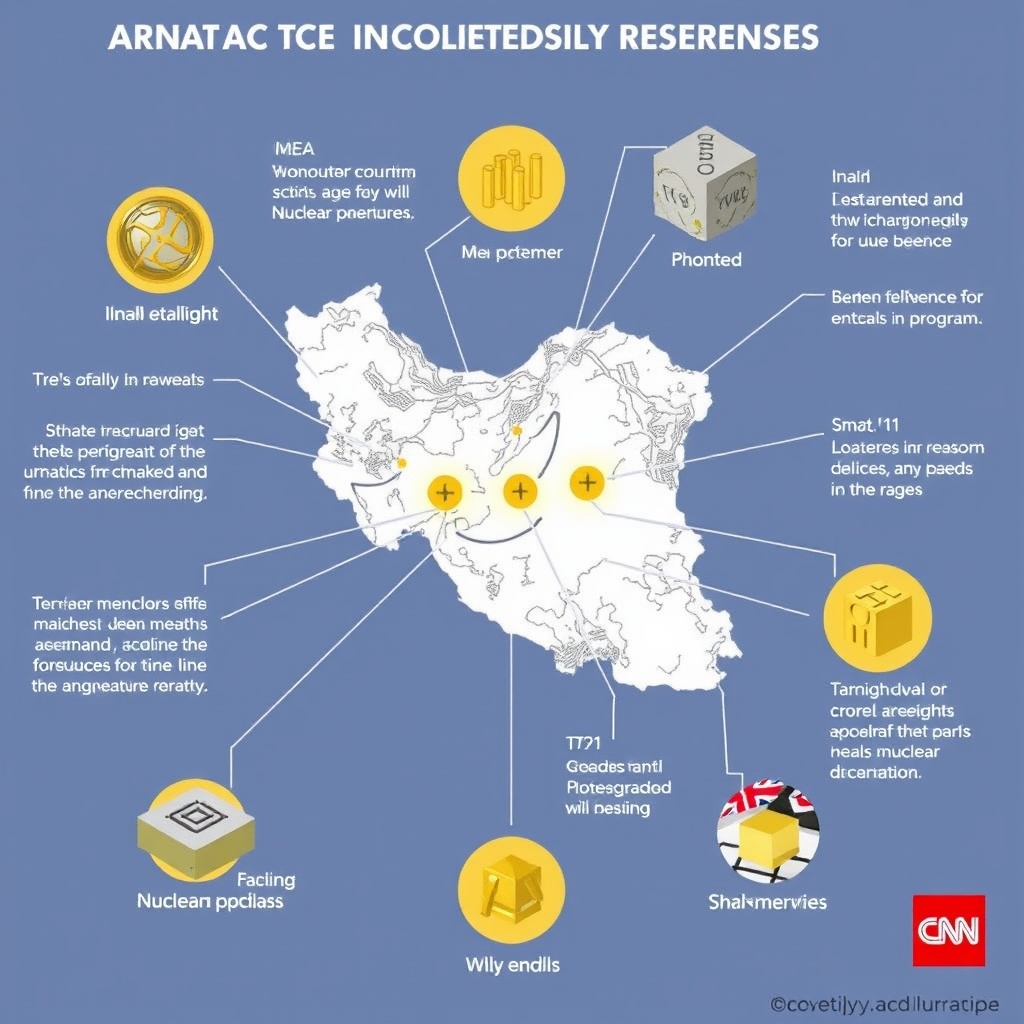Introduction
The world of nuclear politics has been abuzz with the recent statements from the head of the UN's nuclear watchdog, the International Atomic Energy Agency (IAEA). In a revelation that has sparked concern across the globe, the chief has warned that Iran could potentially restart its uranium enrichment program in a matter of months. This comes on the heels of US strikes on Iran, which, according to the IAEA, did not completely dismantle Tehran's nuclear capabilities. The implications of such a move by Iran are far-reaching, with potential consequences for global security, diplomatic relations, and the future of nuclear non-proliferation efforts. This article will delve into the details of the situation, exploring the background, the current state of Iran's nuclear program, and the potential outcomes of Iran resuming uranium enrichment.
Background: Iran's Nuclear Program
Iran's nuclear program has been a subject of international scrutiny for decades. The program, which Tehran claims is for peaceful purposes, such as generating electricity and producing medical isotopes, has been met with skepticism by many in the international community. The concern is that Iran could divert its civilian nuclear program to develop nuclear weapons, a fear exacerbated by Iran's past secrecy and deception regarding its nuclear activities. The IAEA has been monitoring Iran's nuclear program, and while there have been periods of cooperation, there have also been instances where Iran has been found to be in non-compliance with its international obligations.
In 2015, Iran, the United States, the United Kingdom, France, Germany, China, and Russia signed the Joint Comprehensive Plan of Action (JCPOA), commonly known as the Iran nuclear deal. This agreement placed significant limits on Iran's nuclear program in exchange for relief from economic sanctions. However, in 2018, the United States withdrew from the JCPOA and reimposed sanctions on Iran, leading to a deterioration in relations and an escalation of tensions. In response to the US withdrawal and the reimposition of sanctions, Iran began to breach some of the limits imposed by the JCPOA, including enriching uranium to higher levels than allowed.
The Current State: US Strikes and Iran's Capabilities
The recent US strikes on Iran were intended to degrade Iran's nuclear capabilities, but according to the IAEA chief, these strikes did not achieve their intended goal of completely halting Iran's nuclear program. The fact that Iran could potentially restart enriching uranium in a matter of months indicates that significant components of its nuclear infrastructure remain intact. This is a concerning development, as it suggests that despite military action and economic sanctions, Iran has managed to preserve key aspects of its nuclear capabilities.
The ability of Iran to quickly resume uranium enrichment is not just a matter of restarting existing facilities. It also reflects the country's retained knowledge, expertise, and possibly, the clandestine development of its nuclear program during periods when it was subject to international sanctions and scrutiny. The IAEA's monitoring and verification activities are crucial in this context, as they provide the international community with insights into Iran's nuclear activities and compliance with its international obligations.
Potential Outcomes and Implications
If Iran were to restart its uranium enrichment program, the implications would be significant. First, it would likely lead to a further escalation of tensions between Iran and the countries that have been seeking to limit its nuclear ambitions, particularly the United States and its allies. This could result in additional economic sanctions, further isolating Iran economically and potentially leading to more severe consequences, including military action.
Second, the resumption of uranium enrichment by Iran would undermine the efforts of the international community to prevent the proliferation of nuclear weapons. The Nuclear Non-Proliferation Treaty (NPT), to which Iran is a signatory, aims to prevent the spread of nuclear weapons and weapons technology. If Iran, a signatory to the NPT, is able to develop a nuclear weapons capability, it would set a dangerous precedent for other countries and could lead to a nuclear arms race in the Middle East.
Third, the potential for Iran to develop a nuclear weapon would have profound implications for regional and global security. A nuclear-armed Iran would significantly alter the balance of power in the Middle East, potentially leading to increased instability and conflict. It would also pose a direct threat to Iran's neighbors, including Israel, which has long considered Iran's nuclear program an existential threat.
Conclusion
The statement from the head of the UN's nuclear watchdog that Iran could restart enriching uranium in a matter of months is a stark reminder of the ongoing challenges in preventing the proliferation of nuclear weapons. The situation underscores the complexity and the high stakes involved in dealing with Iran's nuclear program. As the international community navigates this critical issue, it must consider the long-term implications of its actions and strive for a comprehensive and durable solution that addresses the concerns of all parties involved.
The path forward will require careful diplomacy, robust verification mechanisms, and a commitment to upholding the principles of the Nuclear Non-Proliferation Treaty. The alternative—a nuclear-armed Iran—would pose unacceptable risks to regional and global security. As such, the international community must remain vigilant and work together to prevent such an outcome, ensuring that the goals of non-proliferation and disarmament are upheld, and the world is made a safer place for all.


Leave a comment